Here’s How To Clean Puppy Eye Boogers Safely & Quickly
Dogs often have goo or “eye boogers” in their eyes. What is the best way to remove the goo? Here’s how to clean puppy eye boogers.
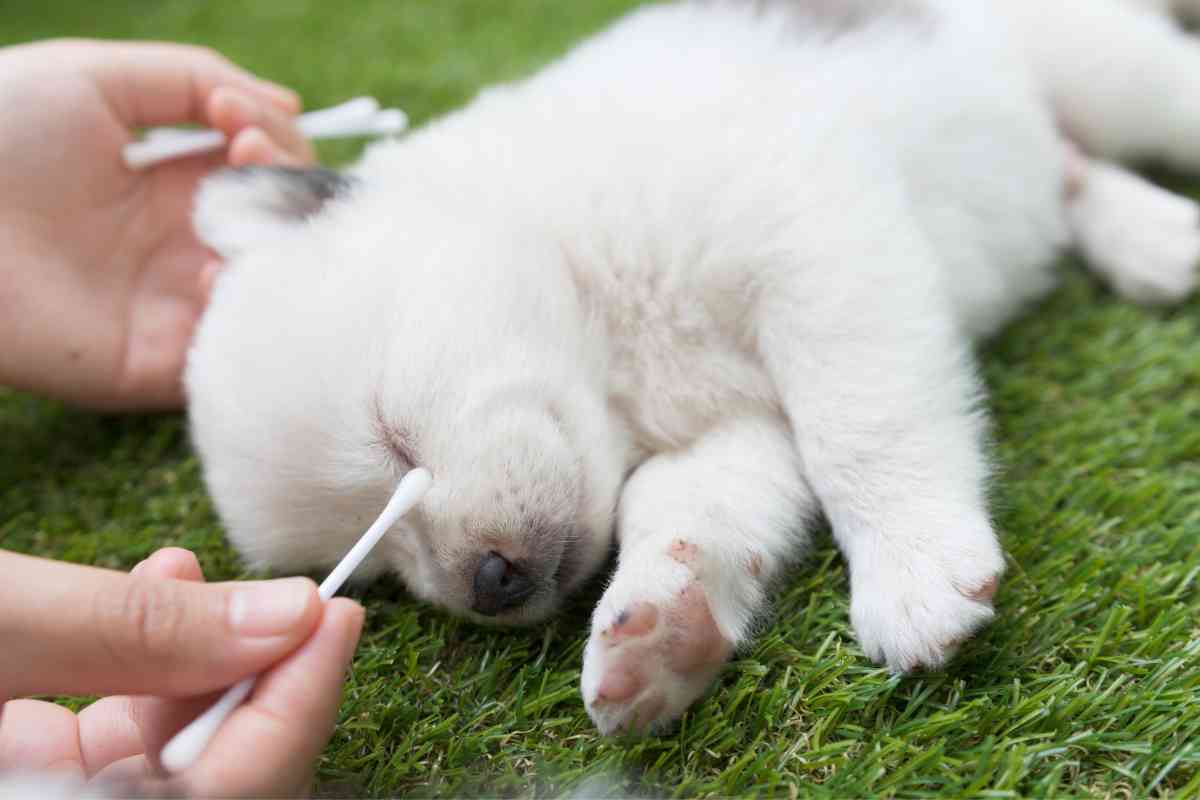
How do you safely clean puppy eye boogers?
You can remove the eye gloop using a soft cloth with warm water. Using a paper towel doesn’t work as well, and you might introduce bacteria if you use your fingers. Excessive eye boogers plus other symptoms mean your dog needs to go to the vet.
As a veterinarian, I recommend sending regular eye checkups. Some potentially serious eye problems are easy to treat if you discover them early.
What Are Eye Boogers in Puppies?
Nearly all dogs experience eye boogers at some point. They are a mix of mucous, tears, and skin cells. The medical term for this substance is rheum.
Eye boogers are sticky goo that can dry and turn into crust. A dog might wake up with eye boogers, or it might get them during the day. Similar stuff appears in human eyes in the morning a lot of the time.
Are Eye Boogers Harmless?
Most of the time, eye boogers are harmless, but not always. Sometimes, eye boogers are caused by a medical condition.
Removing Eye Boogers
You can remove eye boogers from a puppy’s eye by using a soft and clean cloth. This will remove the eye boogers without hurting the dog or annoying it too much.
A paper towel might also work, but it can tear. A soft cloth is one of the simplest and best ways to remove eye boogers.
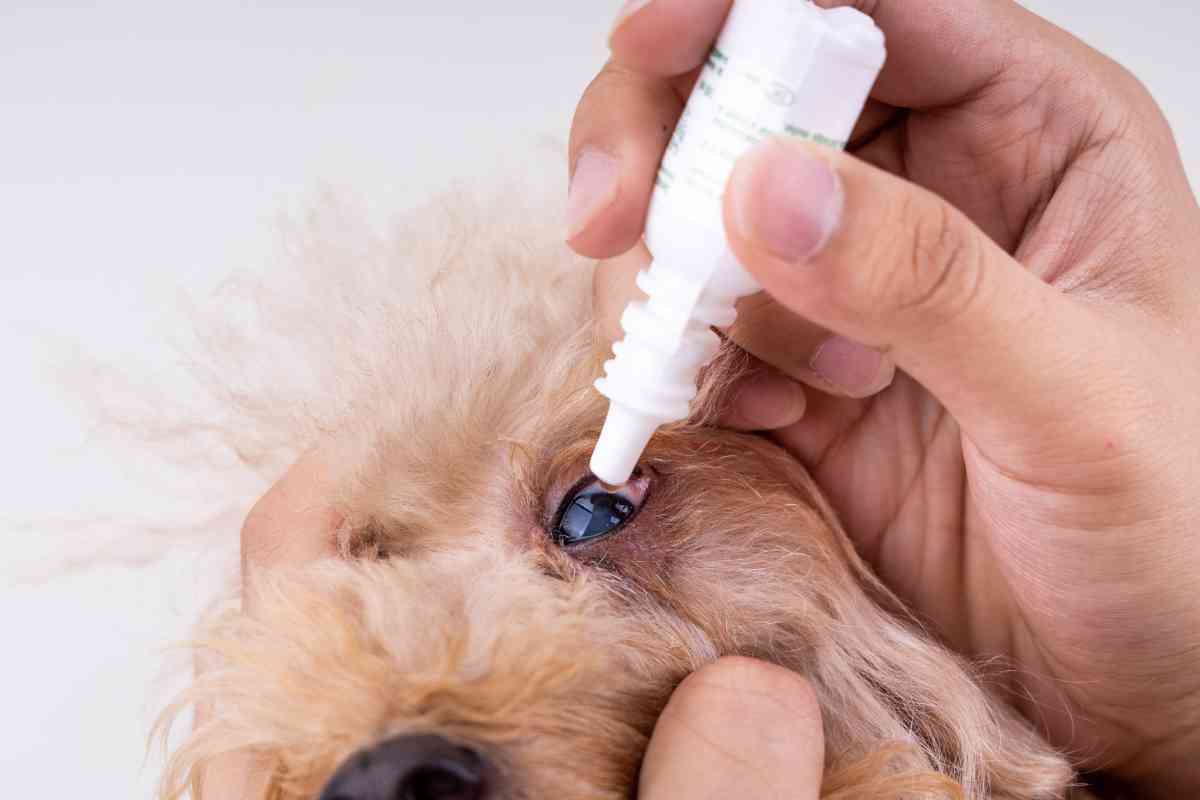
Some Cloths Are Designed for Pets
The most comfortable dogs for your pet are towels designed for pets. Use warm water to wet the cloth. Then use it to first soften and then remove the goo/crust.
Can You Remove Them With Your Fingers?
This is not a good idea because you might introduce bacteria into your dog’s eye. It’s not easy to remove goo/crust from the corner of a dog’s eye this way. Using a soft cloth is better.
Is Your Dog Constantly Producing Tears?
If your dog is excessively producing tears, this might be a symptom of a not necessarily serious medical condition. For example, allergies may make your puppy’s eyes water all the time. Sometimes a more serious condition can cause eye discharge or excessive watering.
Causes of Eye Boogers in Dogs
Seasonal Allergies
Just like humans, dogs and puppies can get seasonal allergies. Plant pollen in the air can irritate a dog in the same way that it irritates a human. Your puppy can get itchy and watery eyes.
If you notice a runny nose, watery eyes, scratching, or a swollen muzzle, it might be allergies. Seasonal allergies can lead to a buildup of gunk in your dog’s eyes. Untreated allergy problems can lead to excessive scratching, which can break the skin and make the dog vulnerable to more serious infections.
Sinusitis
Sinusitis is inflammation of the nasal passages. It happens in dogs and puppies, especially those with longer noses. You may see your dog coughing, discharging mucus, or finding breathing difficult. Sinusitis can lead to more eye gunk than normal.
Tumors
Your dog probably doesn’t have cancer, but it is possible. Cancer treatments for dogs are expensive and don’t always work.
Health insurance can make cancer treatment affordable. You should get health insurance for your dog because it will often pay for treatments that cost thousands of dollars.
Obstructed Tear Ducts
The tubes that move tears out of the dog’s eye are tiny and can become blocked easily, leading to more eye boogers. Physical problems the dog is born with, inflammation, and anything that ends up in the dog’s eye can block the tear ducts.
Irritation
Things like dust, hair, and other irritants in the air can annoy your dog. It may make your dog produce excessive tears and lead to eye boogers. Air filters work to minimize the amount of dust in the air.
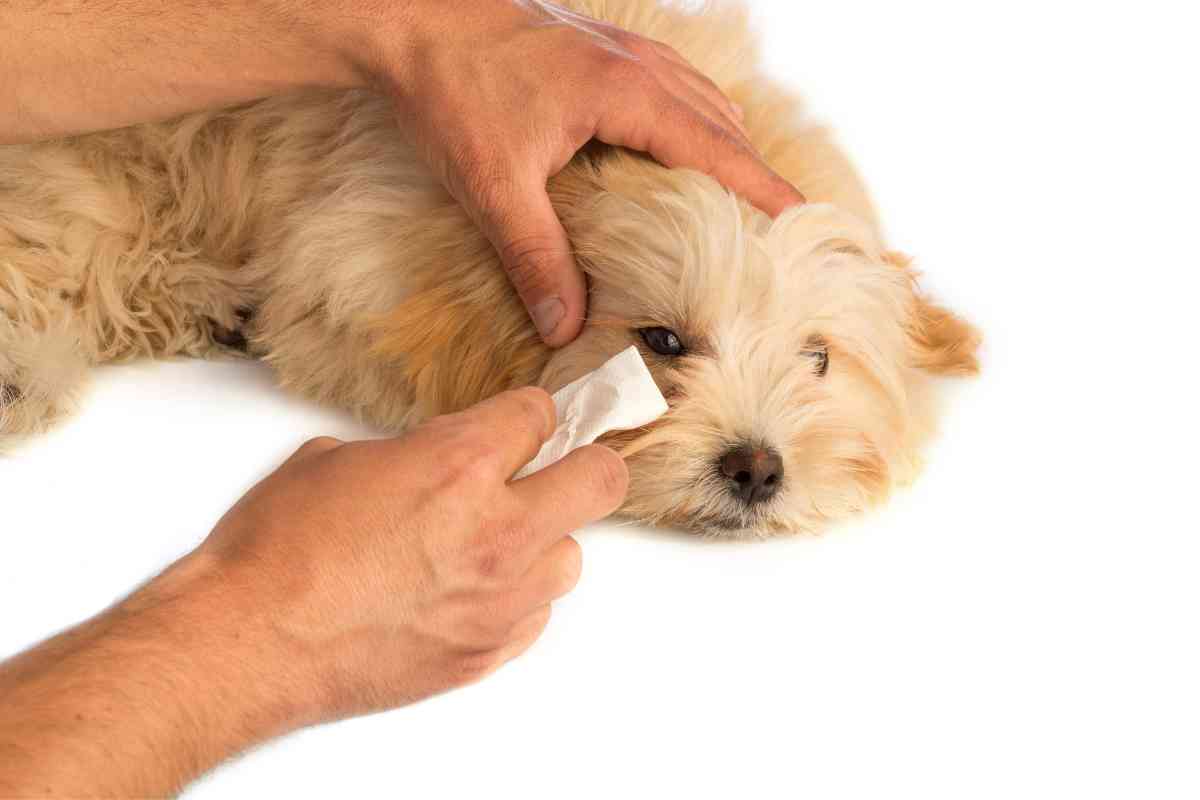
Dry Eyes
Your dog needs to produce tears to keep its eyes clean and lubricated. Without tears, the eyes can fill with debris, which can become gloop. Eye drops can help your dog.
Conjunctivitis
Conjunctivitis is inflammation of the pink tissue around the eye. It leads to discharge and eye boogers. You should get medication to treat it.
Glaucoma
Glaucoma leads to high eye pressure and eye discharge. It can lead to damage if it is not treated, so take your dog to the vet quickly. Glaucoma is also painful for your dog.
Eye and Head Abnormalities
A dog’s eyes or head might be deformed in a way that leads to excessive eye boogers. Sometimes, nothing needs to be done, but if it is a serious problem, the dog may need surgery.
Eye Ulcers
These malformations may cause corneal ulcers, which are serious. Corneal ulcers are eye ulcers or erosions in your dog’s eye. You can’t see them with the naked eye and need instruments to detect them.
Treating Eye Ulcers
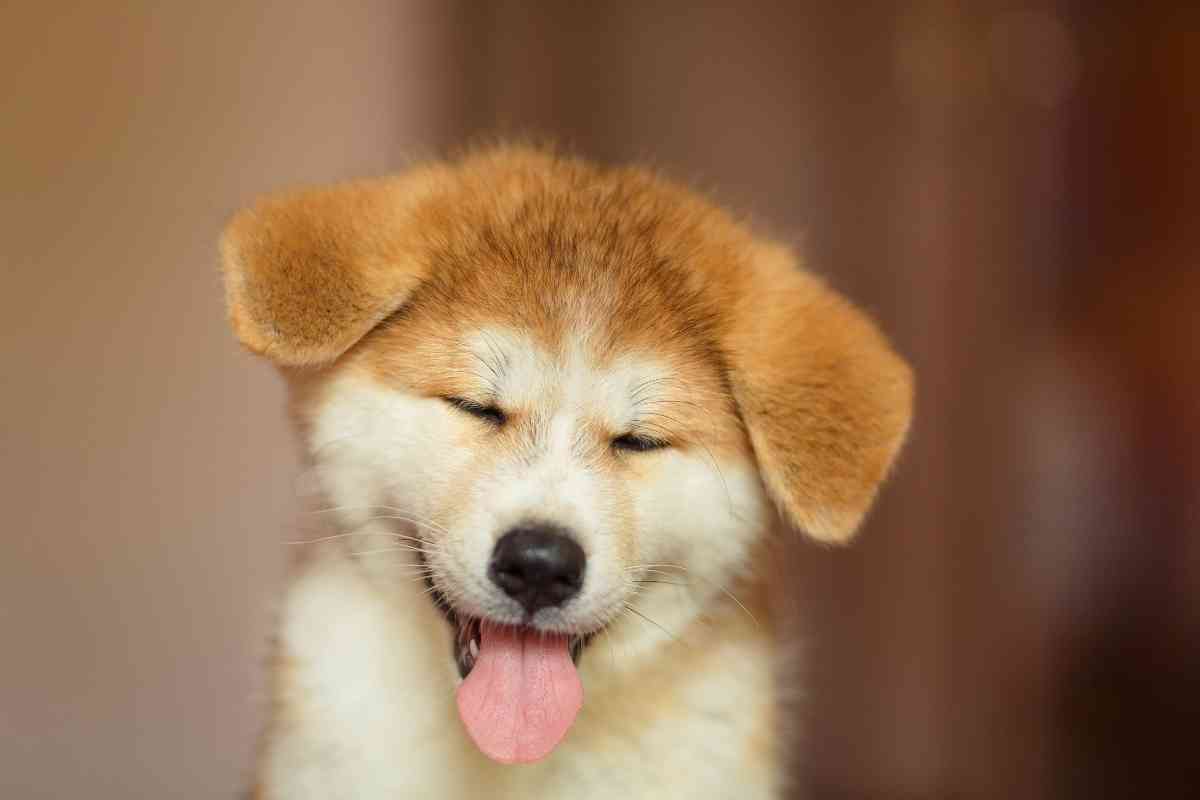
Eye ulcers are painful for your dog and can get worse until they rupture a membrane and permanently damage the eye.
Take your dog to the vet if it is rubbing its eye with its paw. It might also rub its eye on the carpet or another object. Your dog won’t usually need surgery, antibiotics may be enough to help the ulcer heal.
Eye Injuries
A scrape, puncture, or abrasion can result in excessive eye discharge and eye boogers. Take your dog to the vet right away, as there is no guarantee the injury will heal on its own.
What is Epiphora?
Epiphora is when your dog produces excessive tears. It has many different causes. It is not a condition so much as a symptom of some other conditions.
It might be a sign of something mostly harmless or something serious. Talk to your vet and find out what is wrong.
Some Breeds Are More Vulnerable Than Others
Pugs, boxers, bulldogs, and other flat-faced dogs are more prone to eye discharge. This is because the eyes protrude, and the eye sockets are shallower.
These breeds sometimes also have physical problems that lead to gloop in the eyes. The tears might not drain properly, and the eyelids might roll inwards or not completely cover the eyes. In severe cases, the dog might require surgery.
Treating Eye Boogers
Treatment depends on the condition that leads to excessive eye boogers. Sometimes, no treatment is necessary.
If your dog’s tear ducts are blocked, the vet will flush their tear ducts. If the dog’s eyelids are abnormal, the dog may need surgery. Corneal ulcers may require surgery depending on how much damage they have done.
Antibiotics, eye drops, and steroids can also help a dog. A lot of the time, eye problems mean an infection.
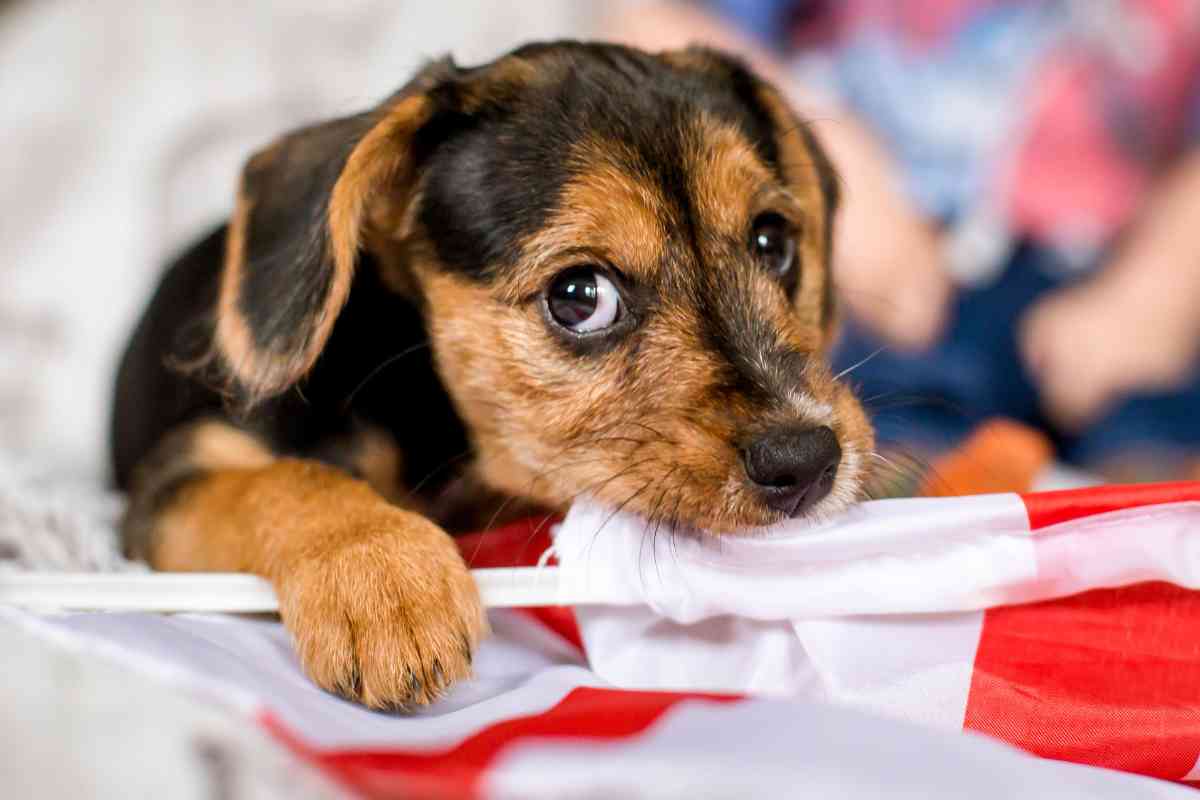
Prevention
There is no reason to prevent eye boogers entirely. However, you can prevent puppy eye problems in many ways:
- Some soaps and sprays can irritate your dog’s eyes. Be careful what products you use.
- Keep the hair around your dog’s eyes short so that hair doesn’t get in their eyes.
- Make sure the dog both spends some time in the sun and is provided with shelter if outside for a long time.
- Feed your dog a good diet. Foods with antioxidants can prevent these problems.
- Use a soft, wet cloth or wet cotton balls to keep your puppy’s eyes clean.
Key Takeaways
- To remove eye boogers from your dog’s eyes, use a soft cloth dipped in warm water. Don’t use your fingers, because you might introduce bacteria that way.
- Eye boogers are normal and usually nothing to worry about. However, something may be wrong if eye boogers are excessive or the dog has other symptoms.
- One common cause of eye discharge and eye boogers in dogs is seasonal allergies. There are also more serious causes such as conjunctivitis, glaucoma, or even cancer.
- Treatment ranges from simple things like eye drops and medications to surgery.
Conclusion
In conclusion, knowing how to safely and quickly clean puppy eye boogers is essential for every dog owner. Eye boogers, while generally harmless, can be indicative of an underlying medical condition that requires attention.
By using a soft cloth dampened with warm water, you can effectively remove the goo without causing discomfort to your puppy. Avoid using paper towels or your fingers, as they may not be as gentle and could introduce harmful bacteria. Regular eye checkups with a veterinarian are highly recommended to catch any potential eye problems early on. Remember that eye boogers are a combination of mucus, tears, and skin cells, and are typically harmless. However, excessive eye boogers, along with other symptoms, warrant a visit to the vet.
Allergies, sinusitis, tumors, obstructed tear ducts, irritation, dry eyes, conjunctivitis, glaucoma, eye and head abnormalities, eye ulcers, and eye injuries are some of the possible causes of eye boogers in dogs. Treatment options vary depending on the underlying condition, ranging from simple remedies like eye drops and medications to surgical interventions.
Taking preventive measures such as using gentle cleaning methods, keeping the dog’s eye area free of hair, providing proper nutrition, and avoiding irritants can help reduce the occurrence of eye boogers. By being proactive and attentive to your puppy’s eye health, you can ensure their overall well-being and catch any potential issues before they become more serious.